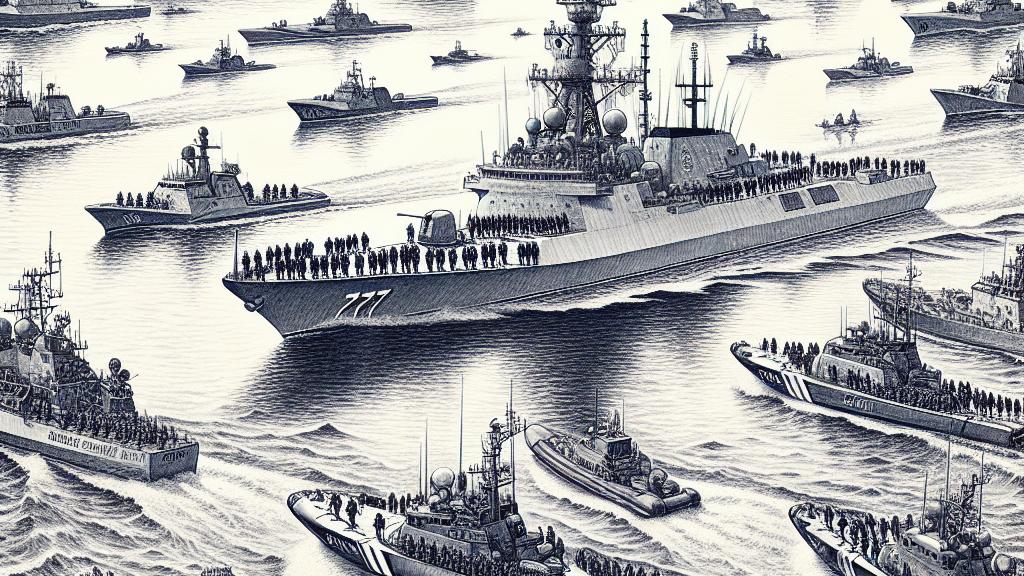Increased Russian and Chinese Navy Presence Near Alaska: US Coast Guard Takes Notice
Overview
- US Coast Guard highlights significant uptick in Russian and Chinese naval operations near Alaska.
- Professional interactions emphasize strategic communication amidst rising tensions.
- Geopolitical ramifications challenge existing maritime dynamics in the Pacific region.

Surge in Naval Activities around Alaska
In a striking turn of events, the Alaskan waters are witnessing an unprecedented increase in naval operations by the Russian and Chinese fleets. This uptick, reported by the U.S. Coast Guard, marks a significant shift in regional military dynamics. Vice Admiral Andrew J. Tiongson has observed that not only has there been an increase in the presence of Russian vessels, but they are also engaging in coordinated operations with the People's Liberation Army Navy (PLAN). For example, the sighting of advanced destroyers and nuclear submarines near the Bering Strait poses a direct challenge to U.S. interests, showcasing a strategic display of military prowess that emphasizes the shifting balance of power in the region. Such maneuvers are not mere shows of force; they signal aspirations that potentially extend beyond national borders.
Professionalism in Naval Encounters
Notably, even amidst heightened military activity, encounters between the U.S. Coast Guard and foreign naval forces have been marked by professionalism and effective communication. In several documented cases, foreign vessels entering U.S. Exclusive Economic Zones (EEZ) have successfully engaged in clear dialogues, affirming their intentions to avoid misunderstandings. Take, for instance, instances where Russian ships have proactively communicated their navigation plans, effectively diminishing the risk of miscalculations. Such interactions illustrate the importance of establishing trust and maintaining a steady line of dialogue, which is crucial in such a volatile theater of operations. This dynamic helps foster a climate of cooperation, setting a precedent for future engagements, even when geopolitical tensions loom large.
Navigating Geopolitical Tensions
The increased naval presence of Russia and China around Alaska is intricately tied to broader geopolitical complexities. With ongoing territorial disputes in the South China Sea and ambitions to secure resource access in the Arctic, these military maneuvers serve multiple purposes. They not only signal strength but also test the resolve of U.S. naval forces operating in these contested waters. Analysts speculate that these actions could serve as strategic messages aimed at shaping the balance of power; they highlight a pivotal moment in international relations. The challenge remains for all involved parties to navigate this intricate landscape with foresight and diplomacy, ensuring that assertive moves do not lead to miscalculations or unintended escalations that could have dire consequences for global stability.

Loading...